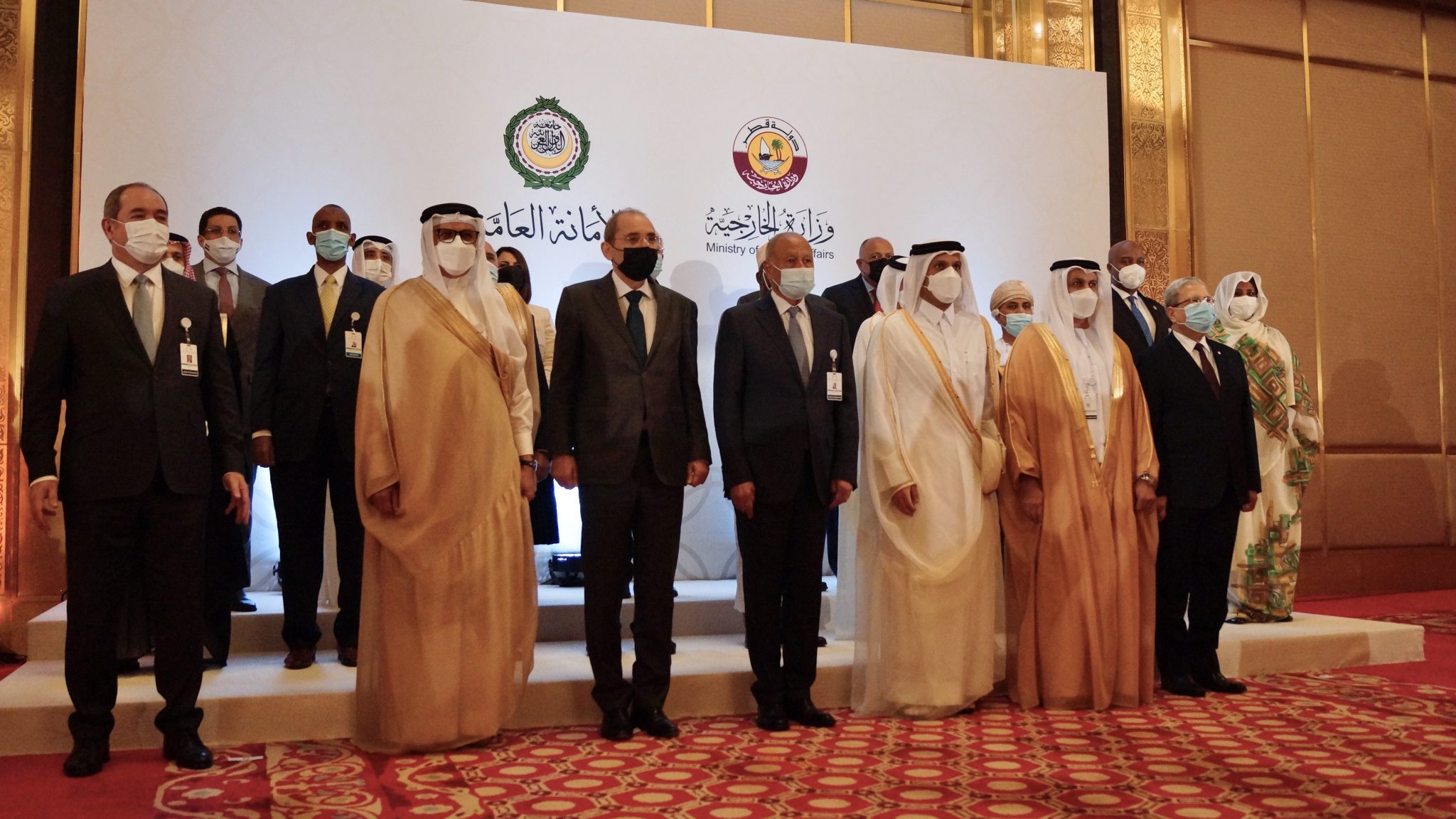The two bodies will also form a joint committee to review the agreement.
The Arab League’s Secretary General Ahmed Aboul Gheit signed a Memorandum of Understanding with his counterpart from the Gulf Cooperation Council [GCC], Nayef Falah Mubarak Al-Hajraf on Sunday to enhance interdependence between the two bodies.
The signing took place at the league’s headquarters in Cairo and came under its commitment, together with the GCC, to provide maximum support for Arab interests and issues, namely Palestine.
Aboul Gheit said that the two bodies will also form a joint committee at the level of assistant secretaries to work on implementing the objectives of the MoU by assigning points of contact and holding regular evaluations of the process.
The agreement is set to strengthen cooperation and coordination between the two organisations.
Arab League
The Arab League was formed in 1945 in an effort to preserve the sovereignty of Arab countries and foster economic growth, while resolving disputes and engaging in regional and political consultations.
Egypt, Syria, Lebanon, Transjordan, Iraq, Yemen, and Saudi Arabia were the first to join the league. Qatar, Oman and the United Arab Emirates later joined the bloc in 1971.
A total of 22 states were involved in the Arab League until 2011 when Syria was suspended following widespread pro-democracy protests that were crushed by the Assad regime.
The league is broken into the Council – the highest level of the league – as well as representatives of member states, which include foreign ministers or permanent delegates.
Members hold meetings twice a year and host emergency sessions upon the request of two members.
GCC
The GCC was formed in 1981, comprising six countries in the Gulf region including: Qatar, Bahrain, Kuwait, Oman, Saudi Arabia and the United Arab Emirates.
Similarly, it was created to promote joint security, economic, cultural and social cooperation between its members and holds annual summits to review ties between all GCC countries.
The goal was also to protect the countries from threats following the 1980 Iran-Iraq War, which started with Saddam Hussein’s deadly invasion of the Islamic Republic that led to at least one million casualties.
The GCC has six main branches, including: The Supreme Council; The Ministerial Council; The Secretariat General; Consultative Commission of the Supreme Council; Dispute Settlement Commission; and Secretary-General.
The bloc has faced major challenges in the past four years after Saudi Arabia, the UAE, Bahrain and Egypt imposed an illegal air, land and sea blockade on Qatar in 2017.
However, all countries involved in the dispute restored diplomatic ties on 5 January this year by signing the Al Ula Declaration in Saudi Arabia, which saw members of the GCC agree to unite for regional peace and security and vow to cooperate to tackle major issues including the Covid-19 health crisis.
Follow Doha News on Twitter, Instagram, Facebook and Youtube







